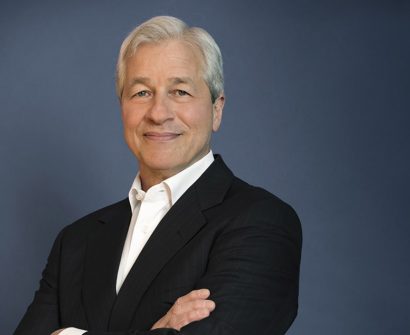Currently Empty: $0
The AI shift: Why are CEOs still betting big to align it with human skills?

Despite the fact that we’re entering an age defined by AI and automation, people remain crucial to long-term business growth. That’s one of the key findings of the second global Arthur D Little (ADL) CEO Insights Study. This in-depth research among CEOs from companies with over US $1 billion in revenues finds that as companies embrace AI, they are investing equally heavily in reskilling their people to maximise its benefits. This picture holds true across the different regions of the world and within the six sectors (telecoms, energy & utilities, manufacturing, travel & transportation, healthcare, and financial services) that the study covered.
CEOs see technology as the principal growth driver in an uncertain world
Technology innovation remains the most critical driver for growth, according to CEOs a fact that has not changed since 2023. One-quarter of all CEOs listed it as one of the top two most important factors, rising to 34% in South America and 29% in North America. This was ahead of areas such as raw material/energy prices, supply chain pressures, and disruptive competitors.
CEOs recognise that the ground rules of business have changed, with 80% of them expecting to pay more management attention to volatility, uncertainty, and related topics (VUCA) over the next three to five years. CEOs aim to combat this volatility through greater customer focus, closer links with suppliers, scenario planning, and, most of all, technology and people. On the technology side, they are aiming to implement more sophisticated risk management tools, improve business intelligence, increase efficiency, and provide greater flexibility within operations.
CEOs welcome the rise of AI and are looking to tap into its benefits
The record-fast rise of generative AI, and the growing maturity of AI more generally, offer transformative possibilities (and challenges) to businesses, whatever sector they are in. In many ways, progress has been swift. Almost all executives claim to have implemented an AI strategy within at least one department of their organisation. Nearly half say they already have a strategic view of AI across the business.
However, turning vision into reality is more complex. Only 13% of CEOs have so far adopted a holistic, compelling, and companywide AI strategy, demonstrating that they are still on a transformation path to fully understand the impact of AI and integrate it across the organisation. In many ways this is unsurprising — fully benefiting from AI requires enormous structural and workforce change, which will only be felt over time.
The furthest advanced in AI strategy are companies within Asia (75% having a companywide strategy or strategic view), those in financial services (79%), and $10 billion+ organisations (67%).
Why Al increases the importance of humans
AI drives the transformation of the entire organisation its structures and business models and the markets it operates in. In order to harness and successfully exploit the potential of AI, CEOs understand that they require new skills across their workforce.
They recognise a need to invest in training and reskilling to ensure their employees can support more agile, Al-driven operations. On average, 92% of CEOs feel that at least some reskilling is required. This is less about the automatic replacement of humans with AI. Rather, it is about ensuring that as roles change, employees are equipped to work with and manage AI to thrive in an unpredictable world and deliver on corporate goals.
Alongside investing in training, CEOs understand that their cultures have to transform. They need to be able to attract and retain talent with the right skills, attitudes, and behaviours to successfully exploit AI. This requires change, particularly in traditional, hierarchical businesses in which promotion is linked to length of tenure rather than innate capabilities. Digital natives from Generation Z are increasingly important, meaning organisations need to meet their specific requirements by reshaping processes, cultures, and practices.
Greater focus on internal talent development to balance external recruitment
Previously, CEOs relied heavily on external sources for new capabilities and talent, primarily headhunters and cooperation with universities. However, in 2024 this focus has shifted, with the largest percentage (30%) now looking to internal academies to deliver talent and skills, up from 21% in 2023.
CEOs see developing their own people as delivering faster results, as new skills such as AI can be layered on their existing expertise, without the requirement to train new joiners on company operations from scratch. Internal academies also support the growing focus on lifelong learning that staff (particularly Generation Z or Millennials) are demanding from their employers. These employees also increasingly want to work for companies that share their sense of purpose and values, particularly around ESG, something that CEOs recognise and are acting on.
Creating the next generation of leaders
To find out, CEOs were also asked for leadership advice they’d provide to younger generations, based on their own experiences and how the business world is changing. Five themes stood out:
- Focusing on sustainability and social issues, including diversity and digital inclusion
- Behaving ethically and morally at all times and demonstrating the company purpose, reinforced by strong governance processes
- Being flexible, adaptable, and entrepreneurial, and not fearing failure
- Putting the customer first and continually listening to their needs
- Embracing lifelong learning, staying curious, and having a commitment to gaining new skills while supporting/mentoring the next generation
This demonstrates that today’s CEOs are fully aware that they need to have a radically different vision of what success involves than those of the past. They are moving well beyond revenues and market share toward achieving a better balance between financial metrics and ethical/environmental factors, essentially aiming to leave the world (and their companies) in a better place when they move on from their roles.
Combining AI and the human element to drive success
Overall, the 2024 CEO Insights Study clearly shows that senior business leaders of the world’s biggest companies are optimistic about the future. They are focused on growth and believe they are well- equipped to operate effectively in a VUCA world, thanks to a combination of strong structures and clear strategies.
They are focusing on AI and human skills to achieve their sustainable growth objectives, investing heavily and aiming to develop their people internally to unlock the potential of AI and drive success. While success is not guaranteed, this paints a heartening picture for the future of their organisations – and the wider global economy.
Source: GWFM Research & Study








